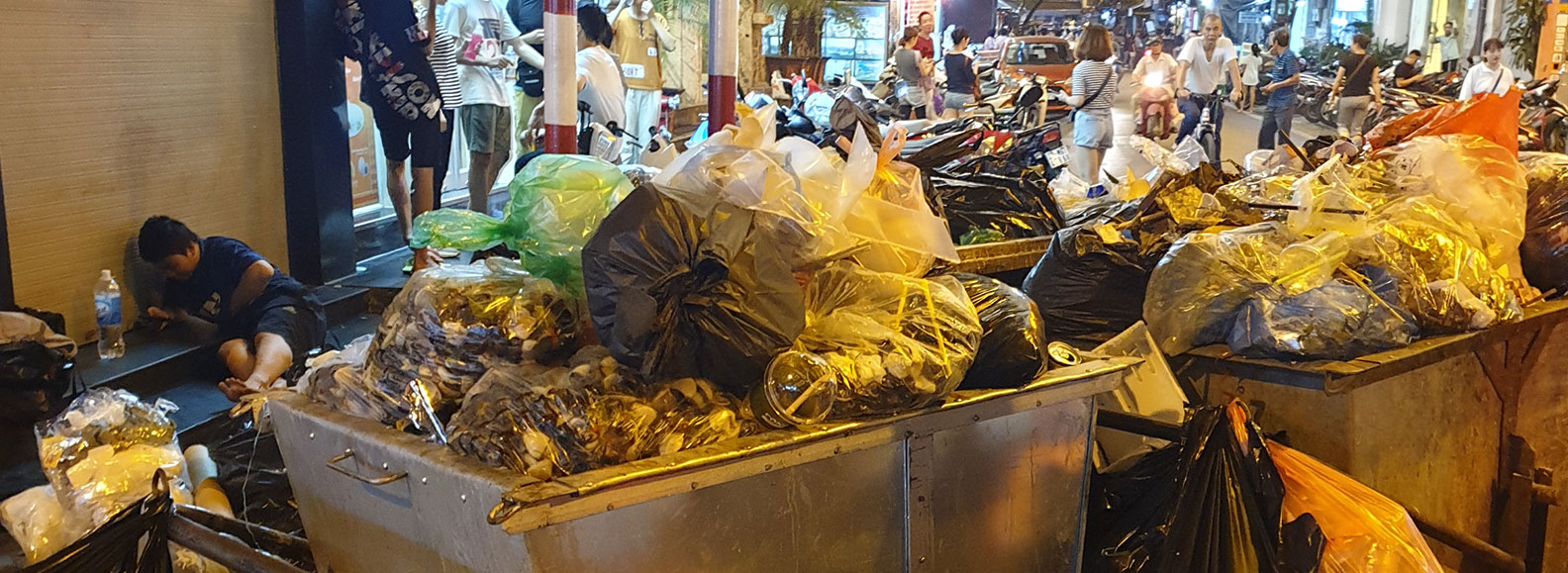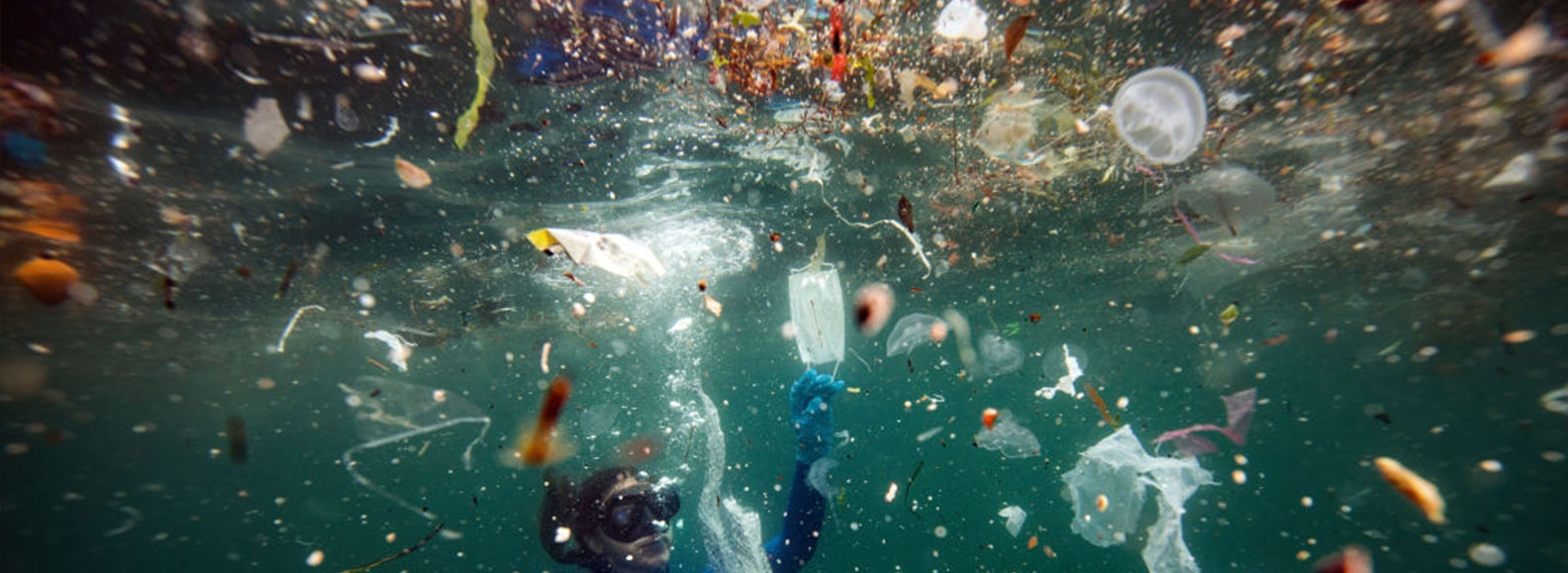Plastic waste: Why it’s important to exchange on plastics in food delivery and takeaways
More and more single-use plastics, such as straws, cups and bags for takeaway, are being used in daily life. Recently, plastics in food delivery, takeaways and online commerce saw an additional rise due to COVID-19 related closures and distancing measures.
However, when dumped and not properly managed, they can contribute to soil pollution or enter water systems and the ocean, where they endanger animals and the ecosystem. At the end of July, GIZ and Expertise France organised a regional webinar with more than 200 participants discussing current efforts to reduce single-use plastics in food delivery and takeaways and share experiences and best practices from Thailand, China and Europe.
“The COVID-19 crisis has definitely increased the need for guidance on how to deal with single-use plastic. Increased demand for food delivery and takeaway responds well to concerns on health and hygiene but results in an important and worrying increase in single-use plastic waste. Our webinar tackled some of the key questions and provided concrete examples of policies and business models that try to address this challenge,” introduced Ms Maria-Chiara Femiano, Programme Manager of the Foreign Policy Instruments/Regional Team for Asia & Pacific at the Delegation of the European Union to Thailand.
Representatives from the EU, China and Thailand shared insights into current policies, for instance Lu Dongsen, Director of Division of Circular Economy Development, Department of Resource
Conservation and Environmental Protection, National Development and Reform Commission (NDRC) in China. He outlined: “In the future, we will strengthen our efforts to increase the reusability of products on the market and to find substitutes in terms of products, machinery and business models. From these three perspectives, we hope to completely transform the existing industry of plastic packaging and products so that we can truly tackle the plastic waste issue from the source. China is willing to work alongside with the European Union and other stakeholders in the international community to tackle the plastic waste issue.”
Representatives from the Pollution Control Department (PCD) under the Ministry of Natural Resources and Environment (MNRE) in Thailand presented Thailand’s “Roadmap on Plastic Waste Management 2018-2030”.
“The aim of the Roadmap is to serve as a framework and direction for preventing and managing plastic waste in the country,”
said Wassana Jangprajak from the Waste Minimisation Sub-Division of the Pollution Control Department (PCD). Amongst other measures, the Roadmap aims to ban single-use plastic bags, cups, straws, styrofoam boxes, cap seals of water bottles, and oxo-degradable plastics.
The PCD is working jointly with 'Rethinking Plastics' on reducing plastic waste and supporting a Circular Economy for plastics to prevent plastic waste from ending up in the ocean. Over the last 10 years, about 2 million tonnes of plastic waste have been generated each year in Thailand according to PCD. An online survey conducted by the PCD in April found that food delivery increased by around 30 per cent during COVID-19 and that the services were used by 60 per cent of the population.
Thonthep Tuanwachat from the RISE Café in Bangkok noted that COVID-19 was a challenge for restaurants. “Once COVID-19 hit us, we were not allowed to let people dine in. So, we had to come up with a strategy and the only way to continue was by offering food delivery. But we could see that there would be a lot of plastic waste and single-use plastic during this time and we did not want to be part of it. We had to come up with a substitute product or packaging to minimise plastic waste.”
The café therefore started to experiment with fruit and lotus leaf packaging and finally used pintos, reusable metal boxes, which were collected after consumption. Further examples shared in the webinar included activities by one of China’s leading e-commerce and food delivery platforms, among them a “no cutlery” option when ordering food and a voluntary agreement to reduce the consumption of plastics by food delivery companies in Singapore and a start-up in Switzerland. The latter provides reusable bowls to more than 1,000 restaurants, for which the customers pay a deposit and can return them afterwards.
A documentation of the webinar is available for further inspiration.
Related Documents
- Presentation-_Meituan_Waimai.pdf
- Presentation-_No_Plastic_in_Nature_by_2030.pdf
- Presentation-_reCIRCLE_Europe_Jeannette_Morath.pdf
- Presentation-_Rise_Cafe_Bangkok.pdf
- Presentation-_Thailands_Roadmap_on_Plastic_Waste_Management_and_current_initiatives_on_single-use_plastic_in_food_delivery_and_takeaway.pdf



